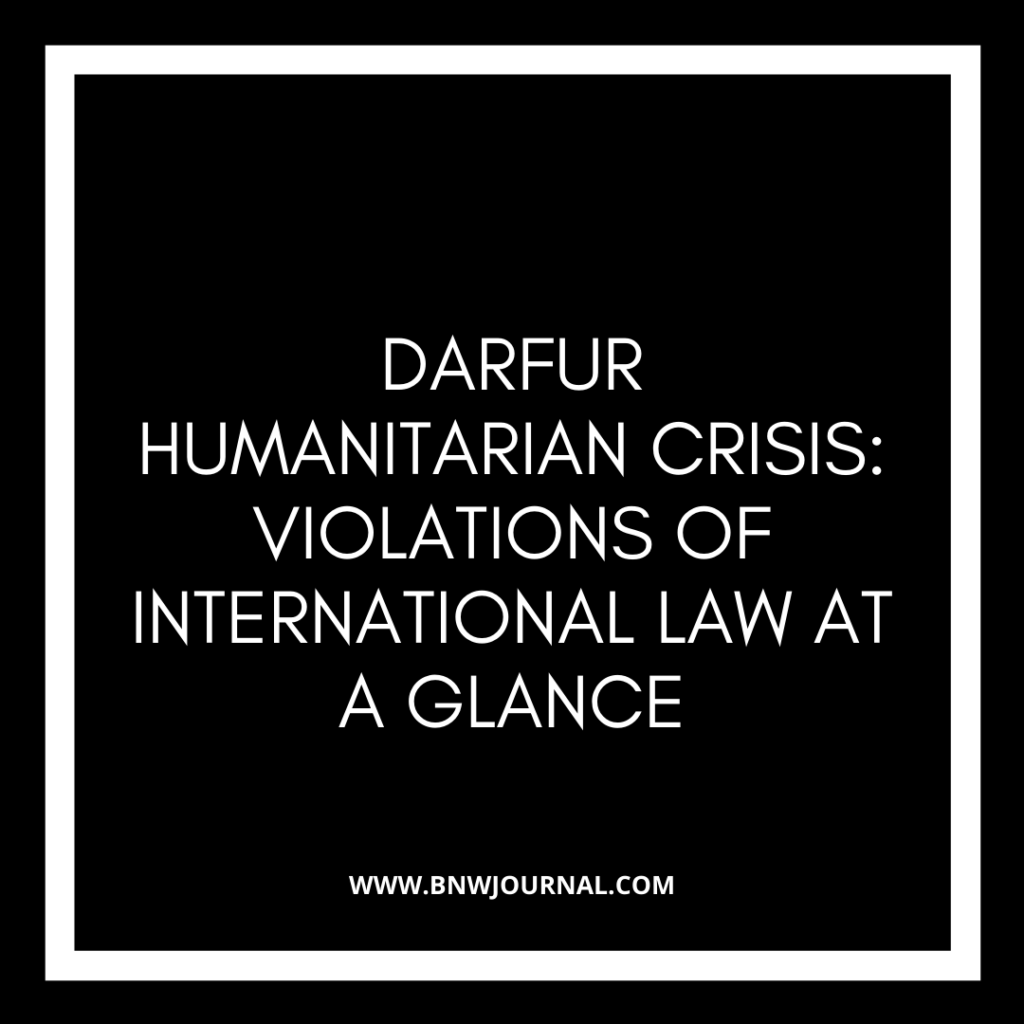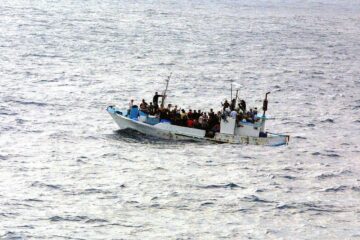![]()
Introduction
International Humanitarian Law (IHL) came into force in the 19th century and has evolved from Hague and Geneva Conventions and lays down principles and rules to be followed during the time of armed conflicts. It has a two-fold objective; one to ensure the protection of those who are victims of armed conflicts and the second is to regulate the means and methods of armed conflicts in the world. The International Committee of Red Cross (ICRC) looks into the protection of the IHL since inception has concentrated on relocating the victims back to their regular lives. However, from time to time, it has not been an easy task for the international organization to achieve its objective. Humanitarian Crisis that has been going on since 2003 in Darfur, Sudan, Africa poses one such threat to International Peace.

It is important to note that IHL does not prohibit the use of force. IHL merely lays down certain rules to guard the armed conflicts. It lays down mandatory rules that impose a duty on both the warring parties. For the essentials, both the parties in an armed conflict should follow the ‘principle of distinction’[1]i.e., the parties should distinguish and differentiate between the civilians and allies involves in the conflict, and under no circumstance can a civilian body be attacked or used as a human guard.
If there is a violation of principle, it turns such armed conflict as a war crime that attracts heavier penalties. However, the Darfur conflict has not seen such a distinction. What is worse is that an armed internal conflict jurisdiction to the international states to interfere; and to go against the government that is violating the obligations under the law.
Further, another fundamental point to be kept in mind is that persons who are ‘hors de combat’[2] i.e., who have been a part of the war, but are presently not because of any medical or other reasons, shall not be attacked, and respected, further provided with all the medical assistance that is required to restore their normalcy, however, this has also been violated.
The customary IHL lays down certain rules for both international and non- international/ internal armed conflicts; however, there is a violation of the same has in the present conflict. Some of them are:
I. ‘Principle of Proportionality’:
It explains that in the circumstances of an armed conflict, the foreseeable military advantage should be weighed against the possible civilian damage that could be caused; Suspension of armed conflict is necessary in case the latter is more. Peaceful methods of resolving the conflict are applicable here. The roots of Darfur conflict go back to the decades-long ethnic differences between the Arabs and the not- Arabs. The government, on one hand, aim at an ethnic cleansing, while the rebels fight for a secular state. In this crisis, either of the parties gains absolutely no advantage from the armed conflict. And time and again the international media proves that the conflict is nothing but a harm to humanity.
II. ‘Prohibition of Starvation as a method of warfare’:
The IHL lays down various prohibited methods of warfare having a nature of inhumanity in them; starvation of the civilians is one such method. It has been proved that the food supplies in Darfur have been destroyed leading civilians to starve to death which is a violation[3].
Also, the Security Council of United Nations Organisation in 2004 has established an International Commission of Inquiry on Darfur, who opined that:
“It is the responsibility of the state to guarantee the basic rights related to health, food, and house to everyone and special protection of women and vulnerable groups, such as children and displaced persons. Additional Protocol II of the Geneva Conventions evokes the protection of human rights for every human; this in itself applies the duty of the state to protect in situations of armed conflict. ”[4]
Conclusion
Thereby, the Humanitarian Crisis in Darfur is a continuous violation of International Humanitarian Law; thought the international communities such as UNO, the African Union (AU), ICRC, etc. tried to negate between the parties, and nothing turned ripe. With the increasing attention from the international community, the Sudanese government has reduced the media flow in the field of conflict, thereby increasing the worry of the international community towards those civilians who await the help of the community to lead their life in normalcy which seems unachievable.
References
[1] (OHCHR | Protocol II Additional to the Geneva Conventions of 12 August 1949, n.d. Art.12)
[2] (OHCHR | Protocol II Additional to the Geneva Conventions of 12 August 1949, n.d. Art.4)
[3] (Overview of the crisis in Darfur, n.d.)
[4] (International Legal Protection of Human Rights in Armed Conflicts, United Nations, 2011, p. 119)



0 Comments